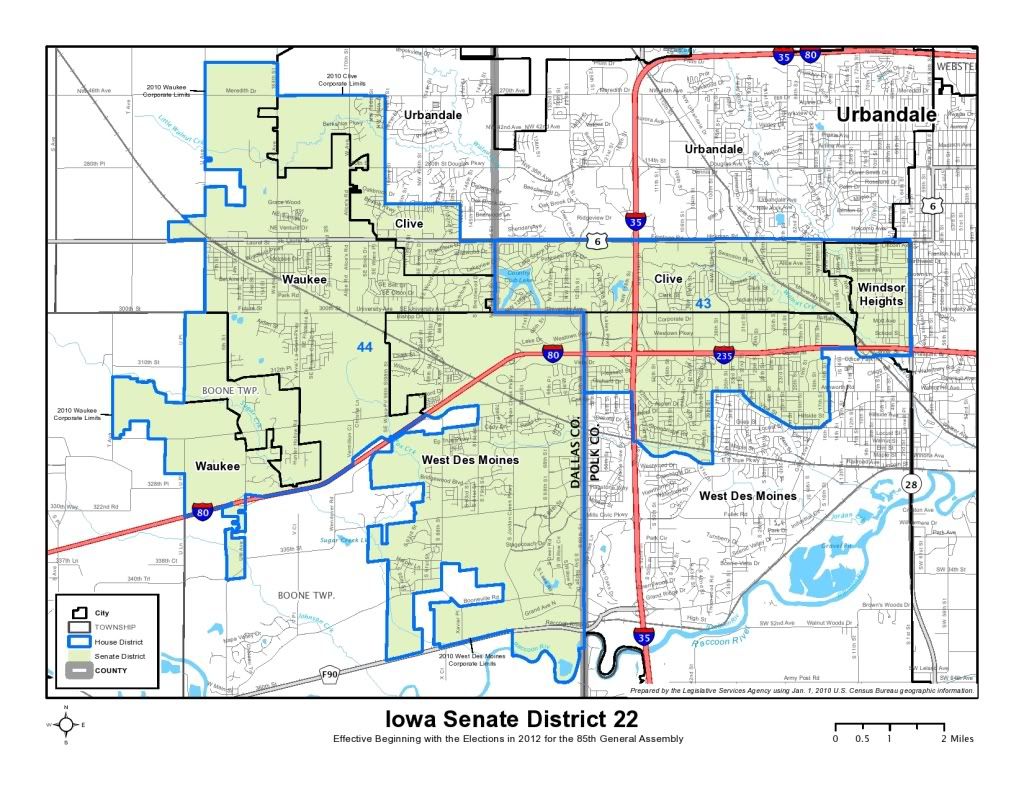State legislative incumbents typically are unchallenged for their party’s nomination, but every election cycle, some hopefuls take on sitting members of the Iowa House or Senate in a primary election. This year, nine Iowa House members (four Democrats, five Republicans) will face competitive primaries. Sometimes these long-shot candidates just want to serve in the legislature, like State Representative Kevin Koester’s GOP opponent in House district 38. Brett Nelson has run for the Iowa House more than half a dozen times.
Other primary challengers are motivated by ideology, like the Liberty-oriented former Congressional candidate Bryan Jack Holder. Wearing an 18th-century style tri-corner hat, he filed this year against State Representative Greg Forristall in House district 22.
Some challengers have a specific bone to pick with the incumbent. Conservative Dave Hartsuch ousted State Senator Maggie Tinsman, one of the last pro-choice Republicans to serve in the Iowa legislature, in a 2006 GOP primary. Hartsuch proved too extreme for his district and fell to Roby Smith in a primary four years later.
Occasionally, an incumbent who appears destined to fight for his party’s nomination ends up in an uncontested primary. In what I deemed a St. Patrick’s Day miracle two years ago, State Representative Josh Byrnes drew no GOP challenger despite having publicly supported marriage equality, Medicaid expansion, and a gasoline tax increase.
This year’s escape artist serves in the Iowa Senate, where no incumbents have any competition on the primary ballot. How he managed to avoid a battle with the far right is completely beyond me.
Charles Schneider is seeking re-election in Iowa Senate district 22, covering the Des Moines suburbs of Waukee, Clive and Windsor Heights as well as a large area in West Des Moines (map enclosed below). I had six reasons for suspecting someone from the social conservative wing would take him on.
• Mega-church Pastor Jeff Mullen challenged the previous GOP incumbent here, Pat Ward, in the 2012 primary. His campaign attacked her record on issues including abortion, gay marriage, and guns.
• Schneider is not an entrenched incumbent. Ward was nearing the end of her second term when she defeated Mullen by about 500 votes in the 2012 primary. Schneider was elected for the first time in December 2012, after Ward passed away two months earlier. He didn’t need to mobilize hundreds or thousands of supporters to win the GOP nomination for that race; a small number of activists at a special district convention picked him from a field of six candidates. In other words, Schneider never demonstrated that he has a strong base among Republicans living in Senate district 22.
• Schneider was the only state senator to endorse Jeb Bush before the Iowa caucuses. The former Florida governor isn’t popular among social conservatives and finished sixth or worse in most of the Senate district 22 precinct caucuses. (In a handful of those precincts, Bush came in third or fourth.)
• Schneider did not co-sponsor the state constitutional amendment to ban same-sex marriage in 2013 or last year.
• Schneider did not co-sponsor the following abortion-related bills during this year’s legislative session: Senate File 2055 (ban on abortions if the fetus weighs at least 350 grams), or Senate File 2152 (changing Iowa’s feticide law from a ban on third-trimester abortions to a ban on all abortions of a fetus weighing more than 350 grams). Nor did he co-sponsor the “personhood” state constitutional amendment or several other anti-abortion bills other GOP senators introduced during the 2015 legislative session. However, this year Schneider did co-sponsor Senate File 2140, which would have banned acquiring, providing, receiving, transferring, or using fetal tissue obtained through abortion, as well as a constitutional amendment to affirm that “no fundamental right to abortion exists under the Constitution of the State of Iowa.” (All Republican-backed abortion legislation is a dead letter in the Democratic-controlled Iowa Senate.)
• Earlier this month, Schneider was the only GOP senator to vote for adding protections for transgender people to Iowa’s hate crimes law.
Qualifying as a candidate for the Iowa Senate is easy, requiring just 100 signatures from district residents on nominating papers. Why did social conservatives gave Schneider a pass? Your guess is as good as mine. I’m glad they did, though. Some local Democrats became Republicans for a day in June 2012 to help Ward fend off Mullen’s challenge. This year’s competitive Democratic races for the U.S. Senate and third Congressional district would have discouraged such behavior.
This November, I will vote for Andrew Barnes, Schneider’s Democratic challenger. But he’s a long-shot in a district with 4,000 more registered Republicans than Democrats. Republicans have been winning state Senate elections in my corner of the Des Moines suburbs since before my birth. If I have to be represented by a member of the GOP caucus, I’d rather it be Schneider than someone from the Bob Vander Plaats/Steve Deace wing.


